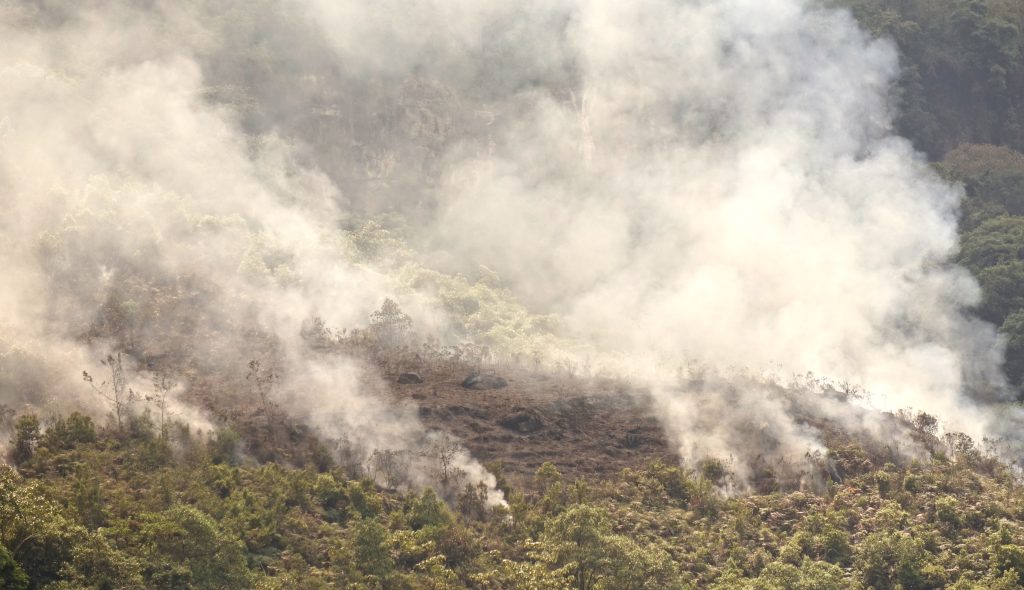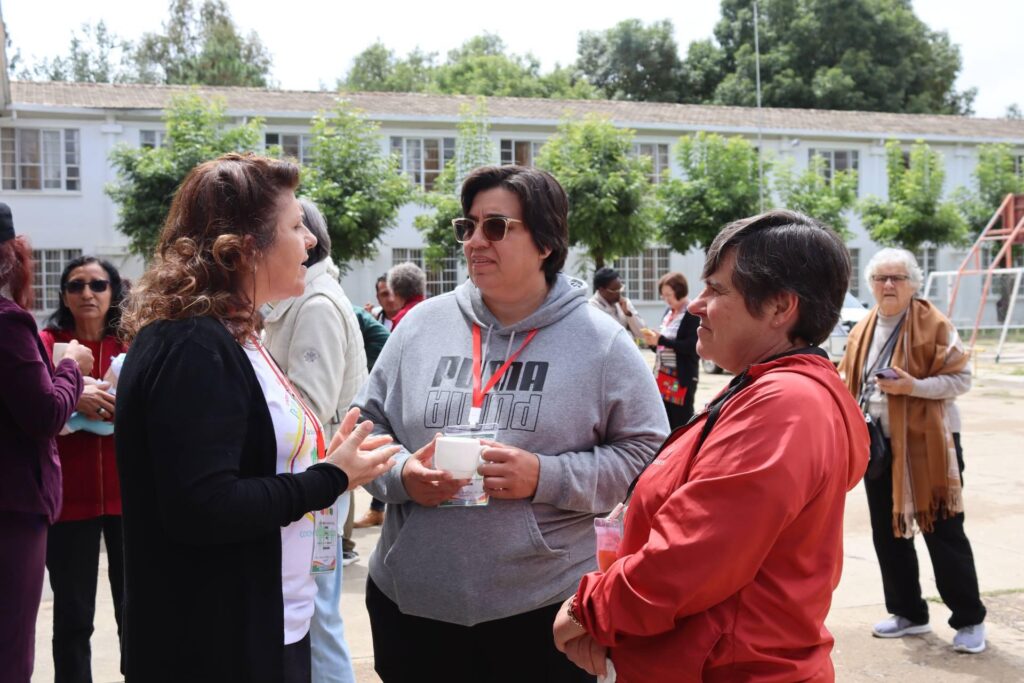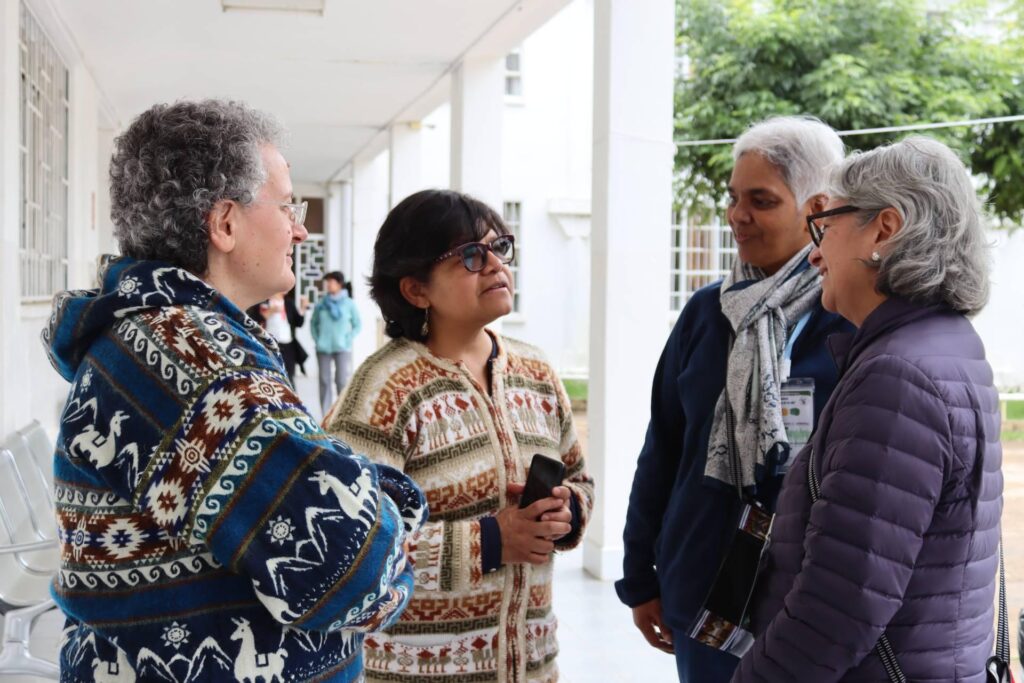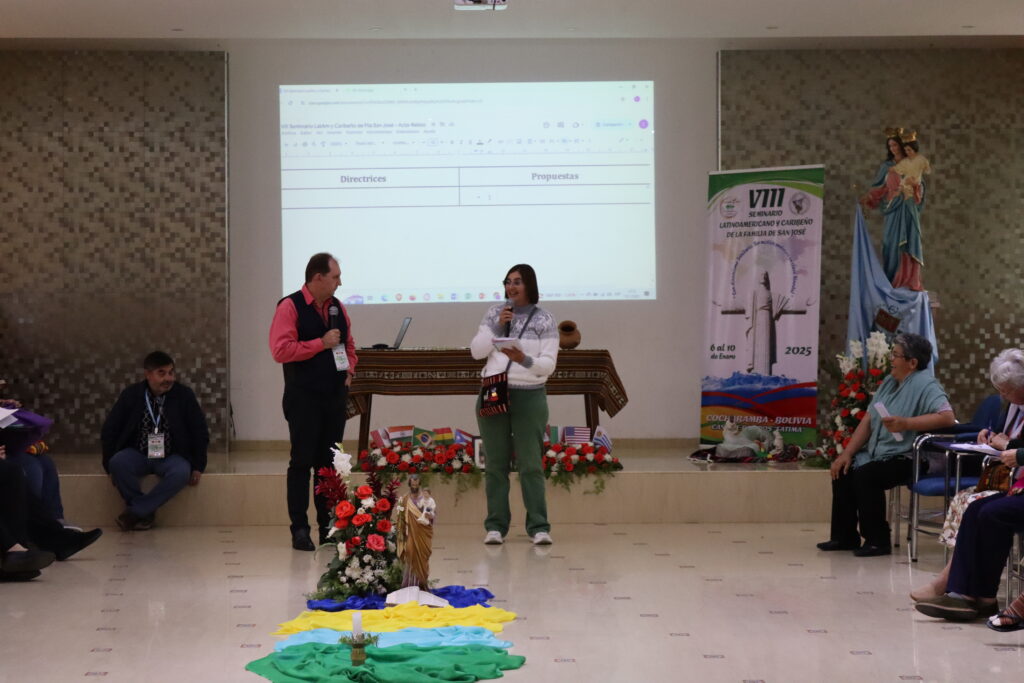How do you understand the “ecological debt” that the Global North has with the Global South?
We express our gratitude for the opportunity to contribute to ORCIE-BCRÉI in this moment of reflection and advocacy, doing political advocacy on climate justice. The prospect of the Jubilee of Hope is a glimmer of light in a world of darkness and gloom in which the “financial world” promotes greater exploitation and submission over the poor south of the world, to the level of the unbearable.
We hope that our contributions can offer elements for debate and proposal of objective and proactive actions in order to sensitize UN leaders and enable ecological justice initiatives, raising balance, equity and dignity for our peoples “enslaved” by financial injustice.
We hope that the cry of the earth and the poor will be heard and sound like a cry for the practice of global relations of an ecologically correct, economically viable, socially just and culturally diverse development.

The ecological debt that the Global North owes to the Global South
There are several factors that must be considered. Some are structural-financial and others support and cooperation, therefore political. First, the Paris Agreement needs to be implemented in practice, because there has been no evolution of the agreed decisions and their effectiveness. The countries of the North, the largest generators of CO2 emissions, have committed to reducing emissions by 25 by 2025. There has been zero reduction so far, according to the scientific institutes that monitor global emissions. On the contrary, there was an increase of 5 to 7 percent.
This not only represents the continuity of a standard of living that imposes a heavy burden of consequences and penalties on the poor South, but the maintenance of a utilitarian and predatory way of natural resources. It is necessary to carry out the real exercise of reducing emissions. It is necessary to adopt efficient mechanisms provided for in the Paris Agreement and other multilateral agreements. “It cannot happen that someone pays to quit smoking but continues smoking. A real reduction is needed.”
The world today releases 221 gigatons of carbon into the atmosphere, while only 215 gigatons are absorbed. There is an equation that does not add up. This factor represents the lack of investments in renewable energies and the adoption of mitigating or compensatory mechanisms in the face of unbridled CO2 emissions. Therefore, the energy transition is the first item on a global agenda to be defended in serious advocacy on integral ecology.
Second, the countries of the North continue to plunder the natural resources of the global South. Let’s look at two examples that refer only to Brazil. In 2023, Brazil recorded a 19% increase in oil exports to northern countries, compared to the previous year. The country exported 81.8 million tons of oil, which generated a turnover of 42.5 billion dollars. Brazil’s share of global oil exports also increased, from 3.5% in 2022 to 4.1% in 2023. In other words, the predatory use of natural resources increases for general CO2 emissions in the North. In 2023, Brazil’s mineral exports increased by 3.1% compared to 2022, reaching almost US$ 43 billion. The trade balance of the mineral sector was US$ 31.95 billion, which corresponds to 32% of the total balance of trade in the country.
In the area of health, for example, the German and Japanese laboratories, just to mention two cases, have patented more than 250 of the active ingredients of the Amazonian biodiversity to produce medicines. On the other hand, the Amazonian and Brazilian population pays at the price of gold any medicine produced by these same laboratories. In other words, the medication produced does not benefit the population of the country that supplies the active ingredients, in a flagrant ecological and global injustice.

We could also add agribusiness exports. The rich world buys and receives food from Brazilian agribusiness, maintaining a pattern of purchase and consumption while 20 million people in the country are in a serious situation and food insecurity. Therefore, the North of the world continues to suffocate the population with serious situations of inhumanity to maintain its standard of consumption, satisfaction and quality of life.
On the other hand, we see frequent announcements of financial support from rich countries with their international environmental funds, but communities do not perceive the effective arrival of resources for sustainability projects, forest renewal, ecological production, clean industry and research for organic production. When some dollars arrive without generating an effective impact, it becomes global news. The media is made on the basis of an injustice practiced against impoverished peoples.
This means that there are no consistent cooperation and investment programs for the development of clean production, agroecology, waste treatment, waste reindustrialization, renewable and sustainable energy projects for poor communities, technology to avoid waste.
By this we are saying that the problem is not the number of people in the world, but how natural resources are being used. The excluded, the vulnerable, the poor continue to pay the “bill” for the costs of the standard of living and consumption of rich countries. This is a matter of ecological and environmental life.
Defending global cooperation in the economic area, cooperation with adapted and sustainable technologies, making investments in support of organic and ecological production are immediate, viable and necessary ways if we want to minimally build global justice.

Connections between colonialism and ecological debt
It is necessary to understand that colonialism developed a predatory, expropriating and non-conservationist way of appropriating the products, goods and wealth of the colonies. This movement continued with neocolonialism, when empires and countries in the nineteenth and twentieth centuries continued to usurp the wealth of poor countries in the south.
Neocolonialism has contributed significantly to perpetuating poverty and hindering the autonomous development of less developed countries. Even after gaining independence, poor countries continued to be economically dependent and politically influenced by the former colonial powers, a fact that led to enormous economic difficulties, generated indebtedness and made it impossible to adopt sustainable programs and negative growth that compromised generations.
The depredation and depreciation of natural resources with exports used as an instrument of economic dependence, because the mechanisms of indebtedness fed back into external financial commitments, had as their only result the compromise of their economies. If, on the one hand, there was depredation by the utilitarian and predatory model of the rich countries of the North, the poor nations of the South were unable to create forms of independent and sustainable development. The economic suffocation prevented any strategy of independence and autonomy of these peoples, to the point of making it impossible to overcome misery and generate internal balance in the distribution of income and wealth.
The consequence of neo-colonialism was not only harmful from an environmental point of view but also perpetuated a system of imbalance and generation of poverty and misery. This equation is inserted in the ecological debt, in which the human being is understood as an embryonic part of the ecology and life of the planet, because the humans are only one species among the 3.75 million species that inhabit the common home.

Connections between ecological debt and the financial debts of low-income countries
It is necessary to define that the public debt that suffocates economies and the possibilities of investment in development programs and public policies in the social area are not necessarily a contraction of resources from the Federal Union of the countries. It has a multiple composition ranging from financing made by states, public companies, autarchies, municipalities and even commitments made by banks and private companies guaranteed by the debtor state.
In other words, indebtedness is the result of the utilitarian and patrimonialist view of the State by sector that benefits from the public structure for private and shady benefits. In the case of Brazil, in September 2024, the federal public debt was at R$6.948 trillion, after a drop of 1.25%. In July 2024, the public debt was at R$7.139 trillion. The Presidency of the Republic projects that public debt will end 2024 at 76.6% of GDP. On the other hand, the total health budget for 2024 is R$ 231.3 billion, including regulatory agencies and other expenses. For social assistance, including social security and public assistance policies, it reaches only R$ 91.1 billion. In the area of environmental preservation, the investment planned for 2-024 is only R$ 700 million.
In the months of July, August and September 2024 alone, the estimated interest maturities of the public debt was R$ 933.91 billion. If we compare the investment, it is possible to conclude that investments in social areas do not reach 50% of the amounts paid in the interest on the public debt, only in one quarter. Interest payments do not reduce the total amount of the debt. The perverse mechanisms of public debt prevent countries from getting rid of this burden that prevents social development and investments in environmental preservation and sustainability.
There is a direct relationship between financial debt and ecological debt. It is urgent to defend the inversion of the debt equation. Ecological justice requires that there be an inversion in the processes of bleeding the economy of poor countries and debtors of financial debts, since in the amount of the capital transferred, there has already been payment of amounts higher than the capital of these debts, to make public investments in environmental sustainability programs, organic production, ecological crops and environmentally sustainable technological processes viable. The mechanism that the rich countries of the North adopt on exploitation is diabolical, expropriating the greater good, which is the generation of wealth by poor countries, without any accountability by international courts, the United Nations or international governance bodies. Rich countries continue to steal the lives of poor people in the Global South.
It is urgent to reverse the debt payment process, with the adoption of control mechanisms on the fair, correct and transparent application of resources and credits from rich countries in social and environmental development programs in debtor countries.

Canada has a particular responsibility to act
Canada, in particular, and the nations of the North bear great responsibility for the concentration of wealth, the insensitivity to suffering and injustice in the world. The cry of the earth and the poor is a cry that demands objective, proactive and cooperative actions, adopted in a perspective of solidarity. For tact, we present a decalogue that, in its fulfillment, will be able to initiate a new moment in the history of global society, recovering the ideals of the earthly paradise, which cannot be configured only as nostalgia, but operated as hope for all humanity.
Our proposition is simple, but consistent and operative. That is why we propose:
- Support the development of research programs and investments in actions that help to slow down the cycles of maladjustment and environmental changes on the planet, in cooperation with organizations in other countries;
- Promote financial, technical and technological support to strengthen the articulation of actions to promote community initiatives and social movements, in networks and in coordination with organizations that are guided by the concept of Integral Ecology;
- Stimulate and promote actions and investments in the capture and use of solar energy, including in the physical structures of civil society organizations that work on health, education and social development programs and projects;
- Support the development of educational programs to disseminate personal and community strategies related to responsible consumption of food and natural goods, changing attitudes and consumption patterns;
- Support and stimulate dialogue, and the construction and parameters of dialogue with all sectors of society on Integral Ecology, including industry and agribusiness;
- Promote actions with universities, social institutions, research centers and technological centers to reduce food waste during harvest and in the transportation system, since 85% of food waste occurs in these areas of the production process;
- Enable the development of actions to protect endangered species, because many species will not have the resilience, resistance and time to adapt to climate change;
- To support and enable the promotion and investment in educational programs on the ethical dimension of the use of natural resources, overcoming the predatory, selfish and utilitarian view of the goods of nature;
- To finance and support programs to train political leaders, and to enable political and community advocacy on environmental sustainability in councils at the municipal, state and federal levels, especially with those responsible for the licensing of new projects and for the proposition and execution of public programs that ensure the protection of water sources and other environmental resources;
- Support and finance effective cooperatives programs and waste recycling associations that enable environmental education, along with the proper collection, recycling and reprocessing of waste, and by providing reprocessed raw material to industry, in order to reduce the impact on the use of natural resources for industrial production.
Porto Alegre, 28 de novembro de 2024
Ir. Nilva Dal Bello, Jornalista Elton Bozzetto, PROJARI – Irmãs de São José de Chambery
